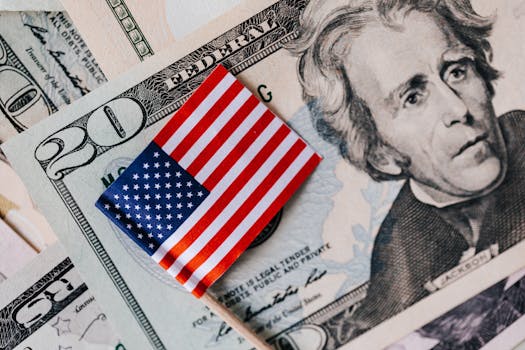Companies with the best and the worst technicals.
Lists of companies in NSE500 with the best and the worst technicals...
Lists of companies in NSE500 with the best and the worst technicals...
Lists of companies in NSE500 with the best and the worst fundamentals...
List of the latest important filings for NSE500....

This article examines the recent slowdown in GDP growth to 5.4 percent,...

This article delves into the increasing interest in personal loans, comparing offerings...

This article explores the transformative impact of social media influencers on consumer...

In recent years, the world has witnessed a significant shift in consumer behavior, with a growing emphasis on sustainability and eco-conscious choices. This trend has given rise to a new wave of businesses that prioritize environmental responsibility, such as Beco and Zerowaste India. These companies have successfully tapped into the burgeoning market for eco-friendly products, addressing the increasing consumer demand for sustainable alternatives across various industries.
The rise in environmental awareness can be largely attributed to several factors, including alarming climate reports, increased media coverage on pollution, and local initiatives aimed at promoting sustainability. According to a study conducted by Mordor Intelligence, the global green consumer market is projected to grow at a CAGR of over 8% between 2021 and 2026, reaching approximately $45 billion by 2026. The data highlights a pivotal shift in consumer behavior, wherein 66% of global consumers are willing to pay more for sustainable brands, as noted in a report by Nielsen.
Two notable examples of companies responding to this demand are Beco and Zerowaste India, both of which have carved out substantial niches in the sustainable market.
Founded in 2018, Beco is a Mumbai-based startup that offers a range of household products made from biodegradable and eco-friendly materials. Their catalog includes items such as bamboo toothbrushes, plant-based dishwashing liquids, and cleaning supplies made from natural ingredients. Beco has not only innovated in terms of product offerings but has also established a robust distribution network across India, incorporating e-commerce platforms and retail partnerships to reach more consumers.
In just a few years, Beco has amassed over 100,000 customers and recorded a revenue exceeding ₹10 crores (approximately $1.4 million) in 2021, illustrating the rapid growth of the eco-friendly market. The company’s messaging emphasizes reducing plastic waste, and their efforts have resonated with environmentally conscious consumers.
Founded in 2019, Zerowaste India operates under the premise that every product can be designed to minimize waste. The company offers a wide variety of reusable, biodegradable, and recyclable products tailored for both consumers and businesses. Their mission is to promote a circular economy where waste is effectively managed and reduced.
Zerowaste India has also launched initiatives that educate consumers on proper waste disposal and recycling practices, furthering their commitment to sustainability. By 2023, Zerowaste reported collaboration with over 150 retail stores across major Indian cities, contributing to a notable decrease in single-use plastic consumption. Their revenue projections indicate growth moving towards ₹5 crores (about $600,000) by the end of the financial year, reinforcing the potential profitability in eco-centric businesses.
The rise of these companies can be greatly attributed to the surge in consumer awareness and activism surrounding environmental issues. Initiatives like the Earth Day, recognized globally on April 22, have continued to galvanize public support for sustainable practices. In a 2021 survey by Ecotextile News, 72% of respondents expressed concern about the effects of climate change and favored businesses that reflect their environmental values.
This trend is not limited to consumer goods; it extends to the fashion industry, with brands like Patagonia and Reformation leading the charge in sustainable production practices. Such developments indicate a broader movement toward sustainability that is becoming ingrained within consumer habits.
As the green movement gains momentum, governments around the world are beginning to introduce regulations that support sustainable business practices. In India, the government has committed to achieving 50% renewable energy capacity by 2030 as part of its Paris Agreement obligations. This regulatory framework is fostering an environment where eco-friendly businesses can thrive, paving the way for further growth in the sector.
Moreover, corporate responsibility is becoming imperative for all businesses, with major corporations now focusing on sustainability as a core tenet of their A business strategy. Reports indicate that companies leading in sustainability efforts have outperformed their peers in profitability. In fact, the International Institute for Environment and Development highlights that companies integrating sustainability into their business model often report a 50% increase in sales growth compared to those that do not.
While the future appears optimistic for eco-friendly startups like Beco and Zerowaste India, they are not without challenges. Competition from established brands, supply chain logistics, and the need for continued consumer education remain significant hurdles. Ecosystem changes, such as fluctuating raw material availability or rising costs for sustainable materials, may also pose risks to profit margins.
Furthermore, consumer skepticism about 'greenwashing'—where companies falsely market themselves as environmentally friendly—remains a concern. Therefore, authenticity and transparency are crucial for these businesses to earn consumer trust and build long-term success.
The eco-friendly business sector, exemplified by companies like Beco and Zerowaste India, illustrates a pivotal moment in global consumer behavior, reflecting wider sentiments towards sustainability. As consumers become increasingly reliant on environmentally responsible products, there lies an unparalleled opportunity for businesses that are willing to pivot and adapt to this evolving landscape. The future of retail belongs to those who embrace eco-friendliness not only as an ethical choice but as a viable business model.

The current price levels of Jio Financial Services Limited, analyzes recent developments,...

This article explores the ongoing tariff conflict between the US and China,...